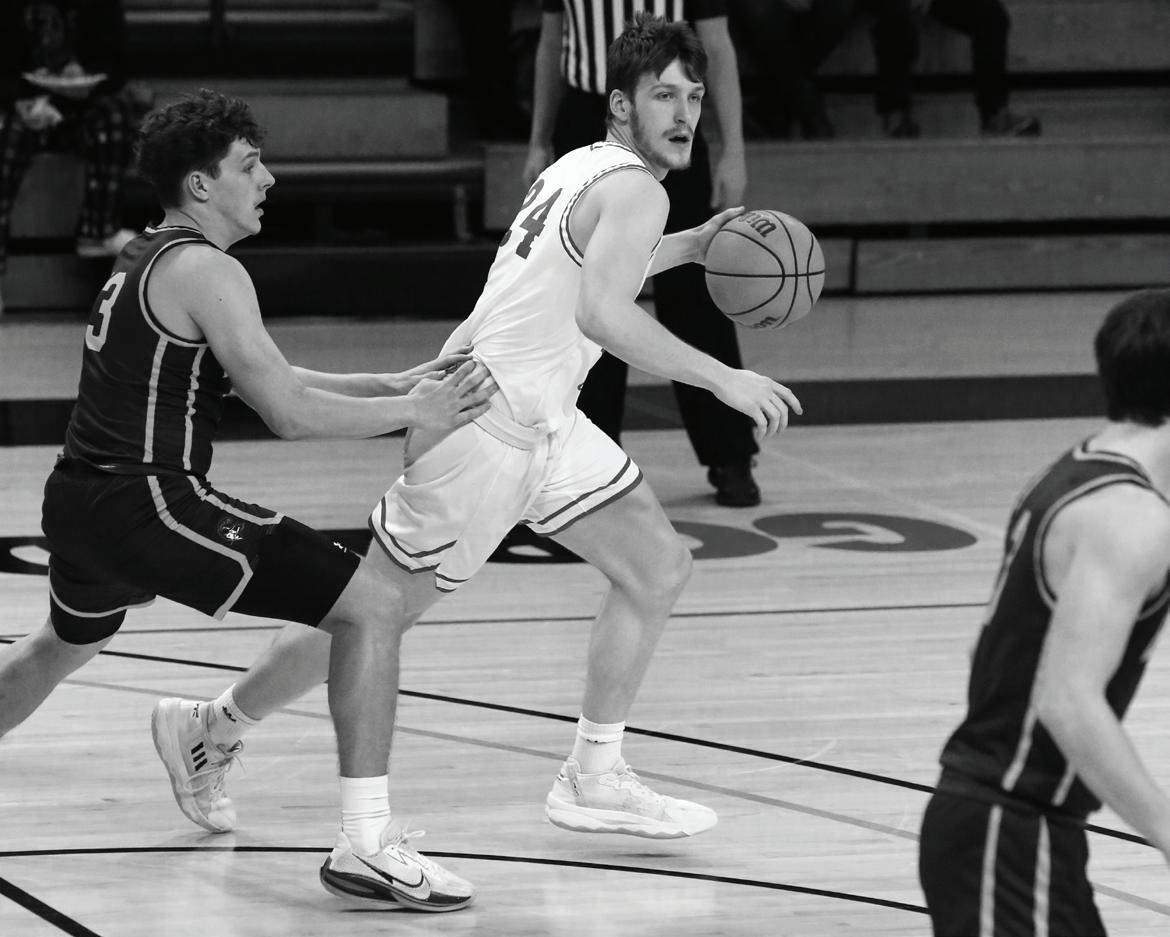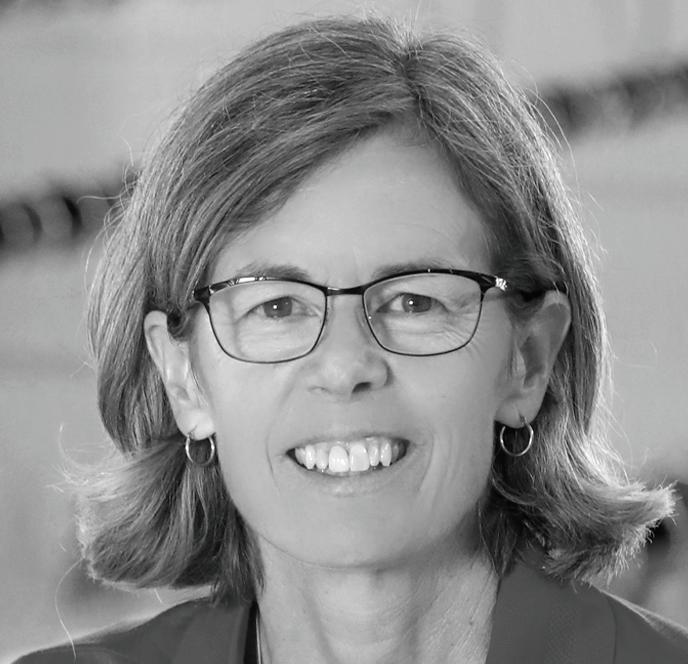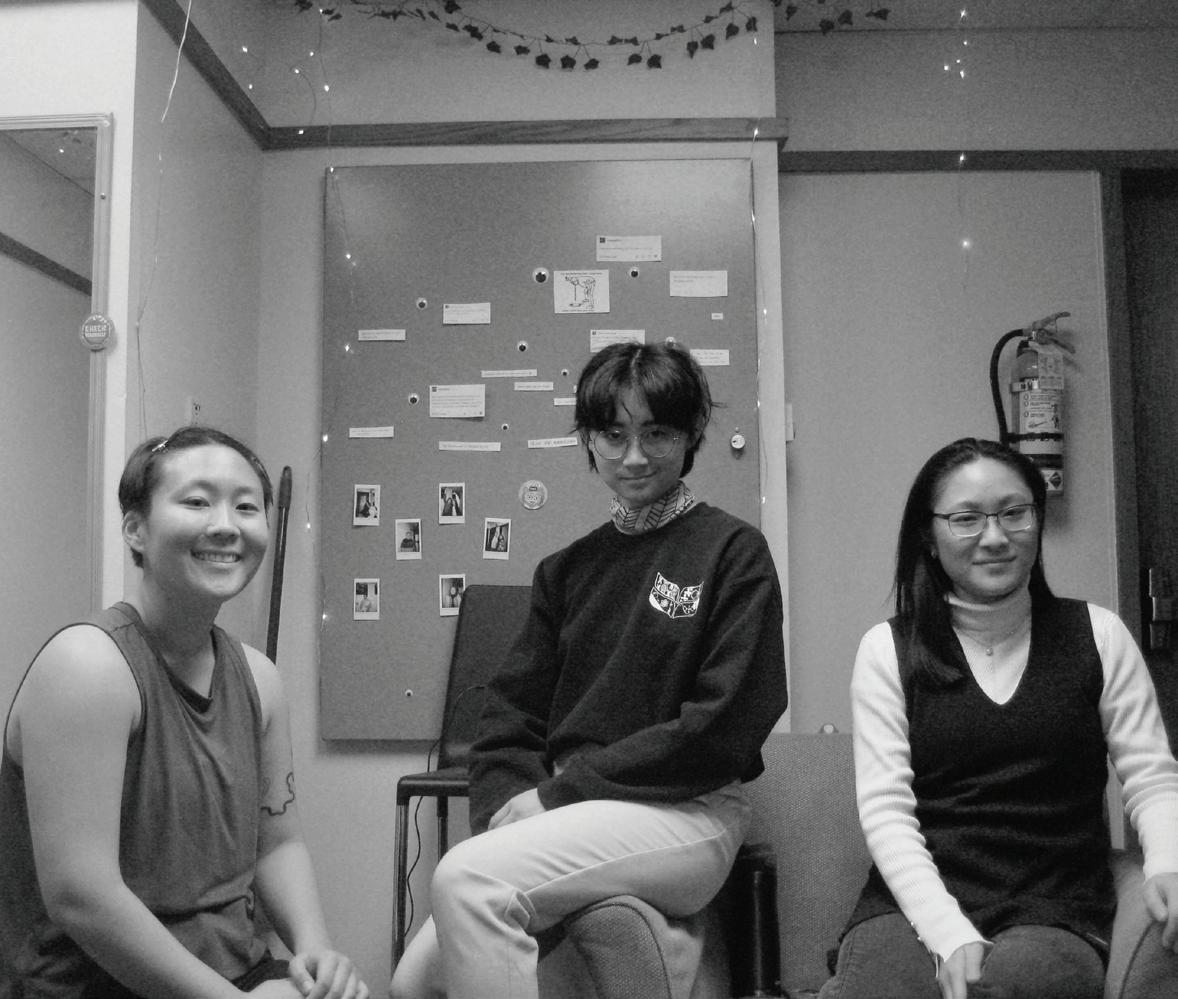
3 minute read
John Garrison waxes poetic as Grinnell Lecture honored speaker
By Taylor Nunley nunleyta@grinnell.edu
John Garrison, professor of English, delivered the 9th annual Grinnell Lecture, titled “It Takes a Long Time to Sound Like Yourself: Contemporary Writing in the Shadow of Shakespeare,” on Thursday, Feb. 23. His talk discussed ideas of contributing to conversations, scholarly or not, when faced with established figures like Shakespeare.
Advertisement
Every year, a faculty member, picked by the dean of the College and three divisional chairs, delivers the Grinnell Lecture. Determined by a faculty member’s outstanding contributions to their field and teaching ability, Garrison is the first English professor to have this such honor. He said due to the nature of his field, this year’s lecture will diverge from previous ones. Rather than only summarizing or presenting research, Garrison explored a poem: Rita Dove’s “Shakespeare Say.”
“The talk itself … is more of a communal experience of sitting with and immersing ourselves in the poem,” Garrison said. “It’s meditation on method, and it’s a guided demonstration of how I think we might read more deeply and write more profoundly.”
Shakespeare, an imposing monolith for some, dominates the world of literature; Garrison emphasized the importance of utilizing Shakespeare as a stepping stone to finding a voice rather than as an unobtainable mark of perfection. “I think if we were able to ask Shakespeare today how he feels about that [dominance], he would say he offers up his writing as a sort of plaything … Shakespeare is an example of writing that’s held up very highly, but his writing is just there to inspire us to do our creating,” Garrison said.
Garrison, who has been on sabbatical leave for the current academ- ic year, has recently finished a book called “The Pleasures of Memory in Shakespeare’s Sonnets.” This work is related to his topic for the Grinnell Lecture, as it explores the idea of shared concepts between Shakespeare and contemporary authors and Garrison’s own feelings towards the works. He also began a new book discussing “Red Hot + Blue,” a 1990 music album’s response to the AIDS epidemic.
During this time, Garrison visited Portugal, a country he previously traveled to in the spring of 2022 through course-embedded travel for his peace and conflict studies class, Conflict Analysis.
Garrison discussed how being in an unfamiliar environment called his own identity into question and thus inspired his exploration with Shakespeare.
“Putting myself in a truly foreign environment, where it’s a different culture, different language, a whole set of different norms … has really thrown into relief for me, ‘Who am I? Who am I when I’m not deeply in relation to people who speak the same language, have the same thoughts, and ideas and politics as I did?’” he said.
“In both these books,” he continued, “I’m using Shakespeare’s poems or I’m using this tribute album to think deeply about myself, and then think about what in my experience I could describe to others that might help them think about themselves in a new way.” admissions, said that the College should increase partnerships with community-based organizations and high schools and prioritize alumni engagement in the recruitment process. Hudson is also a QuestBridge scholar, a program that awards grants to low-income students to receive debt-free entrance to college.
Garrison ended his talk on Thursday discussing the Miles Davis quote, “It takes a long time to sound like yourself,” and how it has influenced his belief on always attempting to create.
“It seemed to me to give us permission to be human and to underscore for us that to be human demands, forgives, allows and bequeaths to us the propensity to make mistakes … of finding our voices by finding ourselves both within ourselves and within the world,” he said.
“As a QuestBridge Scholar, I can attest to the value of organizations that help underrepresented and low-income students find schools where they’ll contribute meaningfully to the community,” Hudson said.
“I was fortunate enough to know someone at Grinnell who encouraged me to apply. That type of connection with alumni is important for prospective students.”
Hudson said that financial aid may be another viable solution, pointing to the Black Student Union’s unmet request for a scholarship specific to Black students. “Say there was a scholarship dedicated to Black or Latinx students — I think significantly more underrepresented students would apply,” he said.
However, according to Harris, race-neutral alternatives must be implemented with caution. “Some race alternatives, like neighborhood data or socioeconomic status, have the potential to simply bring in a larger number of under-resourced white students,” she said. “Lower socioeconomic status white students would, by sheer numbers, not by quality, overwhelm the number of domestic Black and Latinx applicants.”
Therefore, Harris said she believes that the best long-term recruitment strategy is to improve the experience of current underrepresented students at the College. “Grinnell is still a predominantly white institution. The most consequential response will be to use the removal of race from the admission process as a galvanizing event to support the most positive experience possible for students of color,” she said.
Hudson said the improvement of student experience is vital because “if you have a good experience at Grinnell, you’ll be more likely to recommend it to prospective students.”
The Class of 2026 was the first majority-minority incoming class in the College’s history. Harris said that the College will continue assessing options that prevent the Supreme Court’s likely decision from stifling this progress.
“This ruling is a dismantling of an enormous framework of higher education,” Harris said. “There is no quick fix, but we will use quantitative analysis and qualitative experience to continue prioritizing diversity.”










